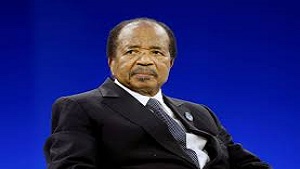This visit underscores efforts to mend the diplomatic rift caused by Ethiopia's controversial plans to establish a naval base in Somaliland, a self-declared breakaway region of Somalia.
During his visit, Mohamud engaged in high-level discussions with Ethiopian leaders to address shared security challenges and foster regional stability.
Political Analyst Alex Kiarie, speaking from Kenya, highlighted the importance of the visit, describing it as a turning point for the region.
According to Kiarie, the visit reflects the leaders' recognition of a common threat in al-Shabaab, the al-Qaeda-linked militant group that continues to destabilise the Horn of Africa.
“The ability of the two leaders to engage and agree on tackling the broader threat in the region marks a united front against al-Shabaab,” Kiarie said.
Both nations have endured Al-Shabaab’s attacks, making collaboration crucial for their security.
Ethiopia has a complex history with Somalia, including previous invasions and involvement in the African Union's (AU) peacekeeping mission in Somalia.
While these shared security interests are fostering cooperation, historical grievances remain, including Ethiopia’s involvement in Somali territory disputes.
The Somaliland issue remains contentious, with Ethiopia's ambitions for a naval base in the region raising sovereignty concerns in Somalia.
Kiarie noted that Ethiopia’s approach could compromise Somali sovereignty but aligns with Ethiopian Prime Minister Abiy Ahmed’s broader goal of expanding regional influence.
Despite these challenges, Kiarie pointed out that Mohamud’s visit reflects a genuine desire to build a coalition for Somalia’s stability. This coalition is seen as vital to realising Somalia’s long-term goal of eliminating al-Shabaab and addressing internal divisions, including secessionist movements in Somaliland and other regions like Puntland and Jubaland.
Kiarie also highlighted African nations' reliance on external mediators like Turkey for conflict resolution, rather than the AU. He described this trend as a critique of the AU’s effectiveness, citing a lack of political will and resources as key challenges.
“The AU’s inability to enforce peace agreements or mediate effectively reflects its precarious position,” Kiarie explained, pointing to other unresolved conflicts in the region, such as Sudan.
The visit signals a step toward diplomatic rapprochement, but significant hurdles remain. Both Ethiopia and Somalia face internal political dynamics that could derail progress. Ethiopia grapples with regional autonomy disputes, while Somalia continues to battle al-Shabaab and internal secessionist movements.
Kenya, a regional ally with ties to both nations, is likely to play a limited role in direct mediation due to its political challenges. However, Kenya’s historical alignment with Ethiopia could influence the broader dynamics.
As Mohamud and Ahmed seek to deepen ties, their cooperation could shape the region’s future stability. Yet, navigating historical grievances and territorial disputes will require sustained diplomatic effort and regional support.
--ChannelAfrica--












